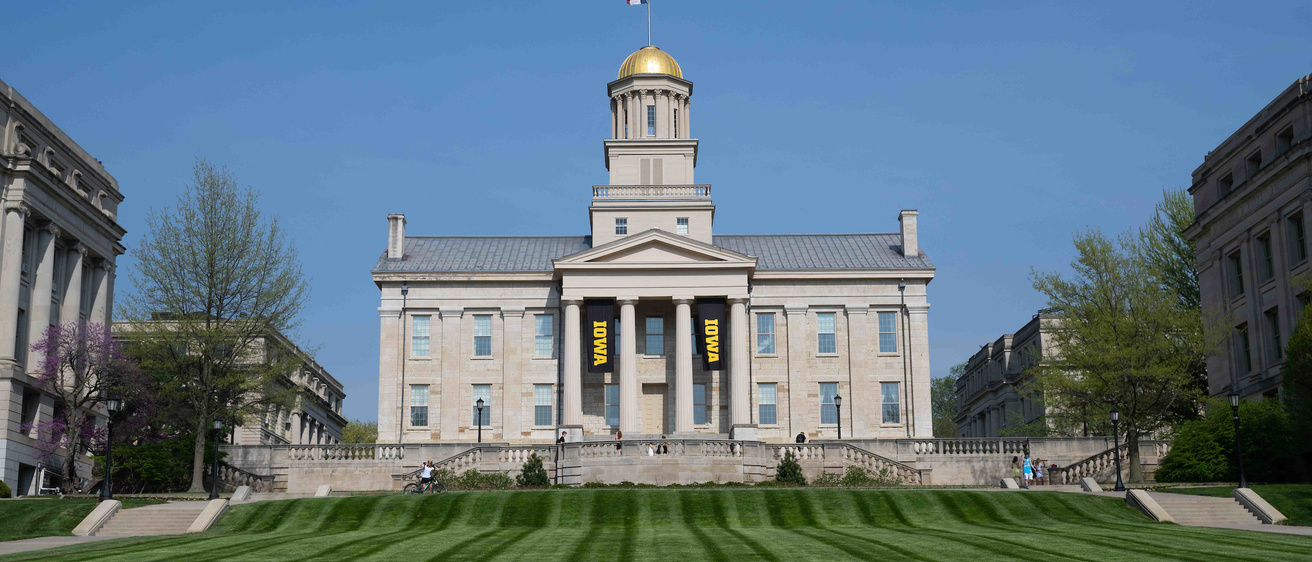Download the Strategic Plan for 2022-2027 (PDF)
Foster high-quality teaching and dynamic educational experiences that empower all students to achieve their aspirations.
The University of Iowa is committed to providing every undergraduate, graduate, and professional student with transformative educational experiences through connections with world-class scholars, unique opportunities for experiential learning, and holistic support at every stage. Iowa prepares future innovators and leaders, researchers and artists, and change-makers and pacesetters who will contribute to the betterment of communities throughout the state and beyond.
Key to transformative student experiences is promoting student learning across experiences, both in and out of the classroom; establishing meaningful relationships with peers, faculty, staff, alumni, community partners, and industry leaders; and providing welcoming, inclusive, and supportive spaces to every member of the Hawkeye family. All of these areas lay the foundation for Iowa's continued commitment to improving student retention and graduation rates.
Objectives and Strategies
- Enhance support, incentives, and structures that facilitate teaching excellence and student learning.
- Provide departmental and program level resources and ensure accountability for the implementation of sustained course and curriculum innovation.
- Promote an institutional culture that elevates the value of teaching excellence by expanding comprehensive support and professional development for teaching.
- Identify opportunities to expand instructor support for course and curriculum development and teaching approaches that strive to better address the needs of all students.
- Evaluate current educational spaces, such as classrooms and online offerings, and recommend improvements that support student learning.
- Expand cohesive, evidence-based academic support for students and strengthen collaboration across support units.
- Expand structured guidance and support for student curricular and co-curricular learning and career planning and networking.
- Promote a comprehensive academic advising network and campuswide philosophy using approaches based on national best practices.
- Evaluate stages of the student experience to identify and address institutional barriers to student progress to degree.
- Provide integrated resources that help facilitate student planning of curricular, co-curricular, and career pathways.
- Promote pipelines for undergraduate to graduate and professional programs that align with student and/or workforce needs.
- Elevate as an area of institutional distinction the diverse mentoring networks that connect students with faculty, staff, peer leaders, and alumni.
- Provide support and incentives for those who serve as mentors and more formally recognize the value of mentoring.
- More clearly define existing areas of strength and opportunities to increase student access to and participation in diverse mentor relationships with faculty, staff, peers, and alumni.
- Strengthen mentoring networks by making available a central hub of tools and resources to support best practices that can be tailored to various mentoring opportunities.
- Improve equitable access to distinctive, high-impact educational opportunities for students.
- Identify and address challenges in student access to and participation in high-impact activities.
- Create an infrastructure to promote shared high-impact practices such as research, scholarship, and creative activities; internships; study abroad and other international experiences; civic and community engagement; and mentored student employment.
